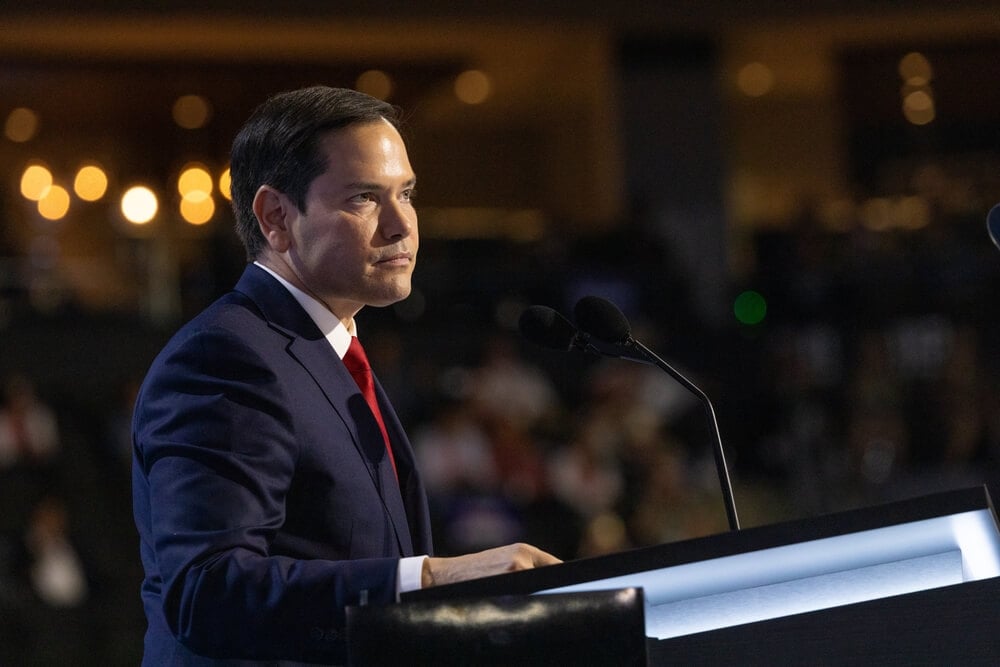For North Korean leader Kim Jong Un, opportunities are opening up to increase his influence on the situation in East Asia, which neither his opponents nor his allies welcome.
Kim did not get into a favourable position overnight. The North Korean dictator feels emboldened by the increasing polarisation of global relations; he wants to play an active role and seeks an opportunity for himself and his isolated country in the aftermath of numerous conflicts.
While Donald Trump's return to the White House is important, it is only one of the events that increase the significance of Pyongyang in the complex security environment of the Korean Peninsula and East Asia.
"He's not a religious zealot. He happens to be a smart guy. Kim Jong-un is a smart guy," Trump told Fox News in his first TV interview since taking office.
This was a clear sign of discontinuity in US policy towards North Korea and a return to the course Trump had pursued during his first term, when he even met with Kim Jong Un.
However, the administration is not yet indicating where this policy change, compared to Biden's, may lead.
Nuclear power or not
In an interview with Fox News, Trump referred to North Korea as a "nuclear power," and his defence secretary, Pete Hegseth, said the same thing at a US Senate hearing last week.
Such a qualification, however, departs from the policy of denuclearising North Korea that has been pursued by all previous administrations, regardless of the party affiliations of their leaders.
It also contradicts the fundamental position of US allies in the region, particularly South Korea, which announced after Trump's interview that the denuclearisation of North Korea was a "prerequisite for global stability."
By no means does South Korea want to relativise the nuclear threat it sees in Pyongyang
“North Korea can never be recognised as a nuclear-armed state. North Korea’s denuclearisation remains a consistent principle upheld by the international community, including South Korea and the U.S.,” said the Ministry of Foreign Affairs in Seoul.
The very direct reaction to Trump's statement shows Seoul's great dissatisfaction with the direction Washington's new course towards North Korea is likely to take.
By no means does South Korea want to relativise the nuclear threat it sees in Pyongyang, but the statements by the new US president and his future defence minister suggest exactly that.
Noises in the US-Asia coalition
One of the benefits Kim Jong Un can expect is precisely the obstacles in US-South Korea relations, as over the past four years of Joe Biden's term, Washington and Seoul have further strengthened their strategic ties, including the historic strengthening of the trilateral alliance that also involves Japan.
One of the concessions that could be made at a possible new meeting between Trump and Kim would be a reduction in the intensity of joint military exercises by the US and South Korea in the Peninsula zone, which would be crucial for Pyongyang.

Marco Rubio expressed doubts that Kim could ever give up his nuclear programme, no matter how strict the sanctions against him are
In addition to the internal tensions and high political instability in South Korea befitting an isolated northern neighbour, Kim Jong Un would like to further loosen the security alliance between the US and South Korea.
If Seoul were to start thinking about its own nuclear programme as a result of such a development, this would be a strong reason for Pyongyang not to reduce its nuclear arsenal, let alone give it up.
The new US Secretary of State, Marco Rubio, has not elaborated on future policy towards North Korea in his previous statements, but he expressed doubts that Kim could ever give up his nuclear programme, no matter how strict the sanctions against him are.
"I think there has to be an appetite for a very serious, broader North Korea policy," Rubio said at his Senate confirmation hearing. This new approach will most likely prioritise preventing regional conflicts. This includes communication with Pyongyang, not full confrontation with the country.
New circumstances regarding Russia and China
In addition to the Trump moment, Pyongyang has earned this favourable position through its engagement in Ukraine alongside Russian invasion forces. In today's circumstances, this engagement indirectly includes North Korea in the future negotiating equation between the US and Russia over Ukraine, even to a small percentage.
If he sits down with Kim Jong Un again, as he did in Singapore in 2019, Trump will face a different interlocutor, this time strengthened by a powerful military alliance with Russia.
The direction of this co-operation regarding the Russian supply of Pyongyang with modern technology for missile and nuclear systems is much more important for the USA and its allies in East Asia than the involvement of North Korean soldiers in Russian operations in Ukraine.
China will have little sympathy for any significant strengthening of North Korea's military capabilities, especially its nuclear capabilities
A possible concession by the US to Kim Jong Un is not welcomed even in Beijing, where a much more open confrontation with the US is expected than during Joe Biden's term.
Possible American concessions to North Korea could be seen by Beijing in the same way as US demands that Pyongyang distance itself from China as its most important ally and patron.
In its endeavour to play a dominant role in the security structure of East Asia, China will have little sympathy for any significant strengthening of North Korea's military capabilities, especially its nuclear capabilities.
But for such Pyongyang's ambitions, which are becoming very clear, China will have to seek a solution in its communication with the Trump administration, which will give it an additional burden in the upcoming, very complex dialogue with the US.